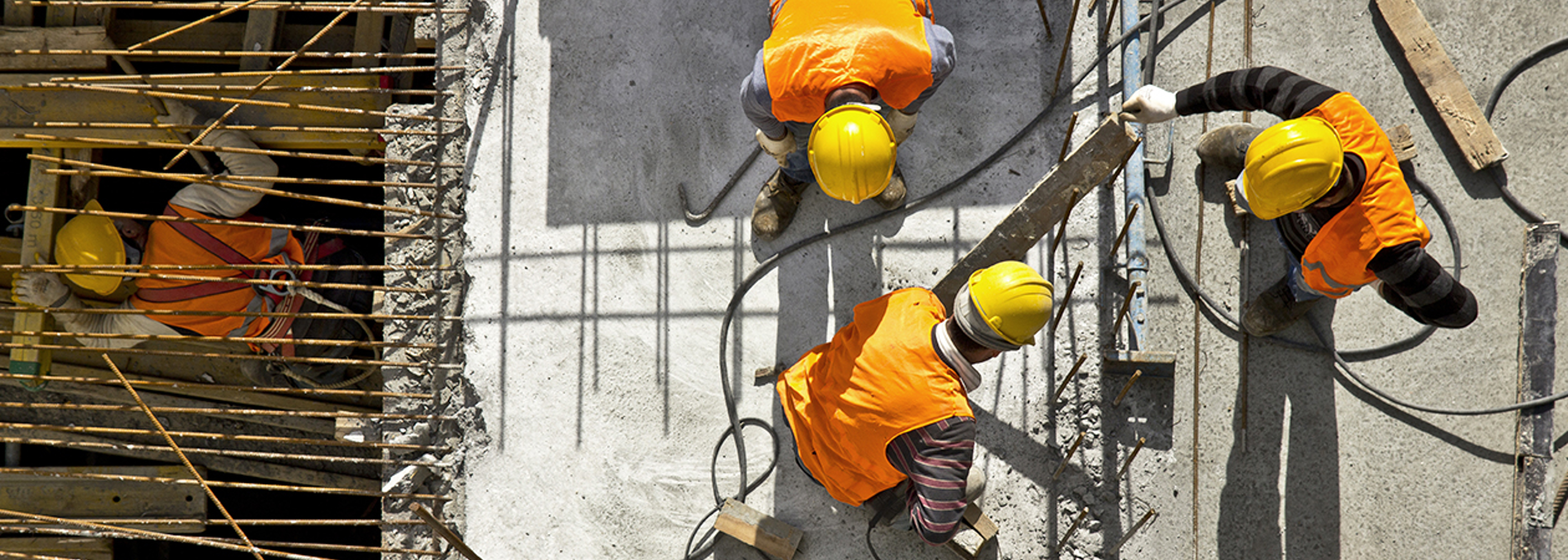Help us create an Environmental Health APPG
Join our campaign by urging your local MP to support the formation of an All-Party Parliamentary Group (APPG) on environmental health.

Construction especially comes under scrutiny as sites remain busy.
Wednesday, 8 April 2020, Katie Coyne
The Hazards Campaign has been questioning why some non-essential work has continued during the lockdown, and has serious concerns about how measures designed to prevent the spread of the virus are being implemented at workplaces.
Hazards Campaign spokesperson Janet Newsham said: “For all our sake, stop this madness. We have workers side-by-side building luxury hotels when almost every hotel in the land is shut down and in crisis, and building power stations that won’t go online for years. How can these jobs have been considered essential?”
Today the UK recorded the highest number of deaths from the virus in a 24-hour period, at 938. The Institute for Health Metrics and Evaluation (IHME) in Seattle predicted the UK was on track to have the highest overall number of deaths at 66,000 – second only to the US – by August, and a peak death daily rate by April 17 of 2,932.
The Hazards Campaign points to a work by Professor Andrew Watterson at the occupational and environmental health research group at Stirling University in Scotland. Watterson outlines failures so far and the action the government needs to be taking right now.
Watterson commended the Scottish government’s swift approach in clarifying what essential work was within the construction sector.
While many businesses do remain open, the Hazards Campaign is calling on the Health and Safety Executive to “step up” and enforce workplace safety measures and close those businesses that won’t comply. Newsham added: “All workers including vulnerable zero-hours and the bogus self-employed need reassurance and access to information and support in the workplace.
“This means they need a health and safety enforcer to listen to their concerns, raise their issues and challenge negligent employers. We need them to close down employers who are putting people’s lives at risk.”
Newsham argued that preventing the spread of the virus within the community was paramount to help protect our healthcare and essential workers, especially with the lack of PPE. She added: “We are weeks into the pandemic and frontline staff are dying from a negligent government who are failing to provide basic PPE never mind a standard of PPE that would keep all health and care workers and all essential workers safe.
“We need a precautionary approach to this new risk and one that provides workers with the best chance of avoiding being infected by it. It needs to be a robust approach using the best possible research and international evidence available.”
Newsham was also frustrated at the lack of testing and tracing within the community. She said: “Continually over the last few weeks, government officials have said that testing is coming. And weeks before, international experts declared that the only way to win the battle against the virus spread was to test and track. Only this will save the lives of both the front-line workers and the rest of society. We have to attack the spread of the virus and test, track and quarantine, is the only way proven way to achieve this.
“There shouldn’t need to be a debate about who is going to receive treatment or not, we should have in place a health care system alongside a strategy that protects our most vulnerable.”
The full list of action that campaigners urge the government to take is listed here.
EHN Extra approached HSE with a number of questions and its response is below. We have since asked it to comment on the call to halt non-essential work but it has not yet responded.
“COVID-19 is a public health issue and the Department of Health & Social Care, working closely with Public Health England (PHE) and the devolved administrations, is the lead government department for the UK response.
“Employers who have people in their offices or on site should ensure that employees are able, where possible, to follow PHE guidelines on social distancing [including, where possible, maintaining a two-metre distance from others], and hygiene [washing their hands with soap and water often for at least 20 seconds]. Here is guidance on how to keep employees safe.
“If someone would like to report a workplace issue they can do so here.
“Where HSE identifies employers who are not taking action to comply with the relevant PHE guidance to control public health risks (for example, employers not taking appropriate action to socially distance or ensure workers in the shielded category can follow the NHS advice to self-isolate for the period specified) we will consider taking a range of actions to improve control of workplace risks.
“These actions include the provision of specific advice to employers through to issuing enforcement notices to help secure improvements with the PHE guidance.
“With regard to whether any businesses are currently under investigation, we are not yet in a position to share our dataset on this fast moving and unprecedented situation. That said the ones you’ve highlighted – Amazon, Matalan and JD Sports – are regulated by local authorities, not HSE. For more on enforcing authorities, see here."

Help us create an Environmental Health APPG
Join our campaign by urging your local MP to support the formation of an All-Party Parliamentary Group (APPG) on environmental health.